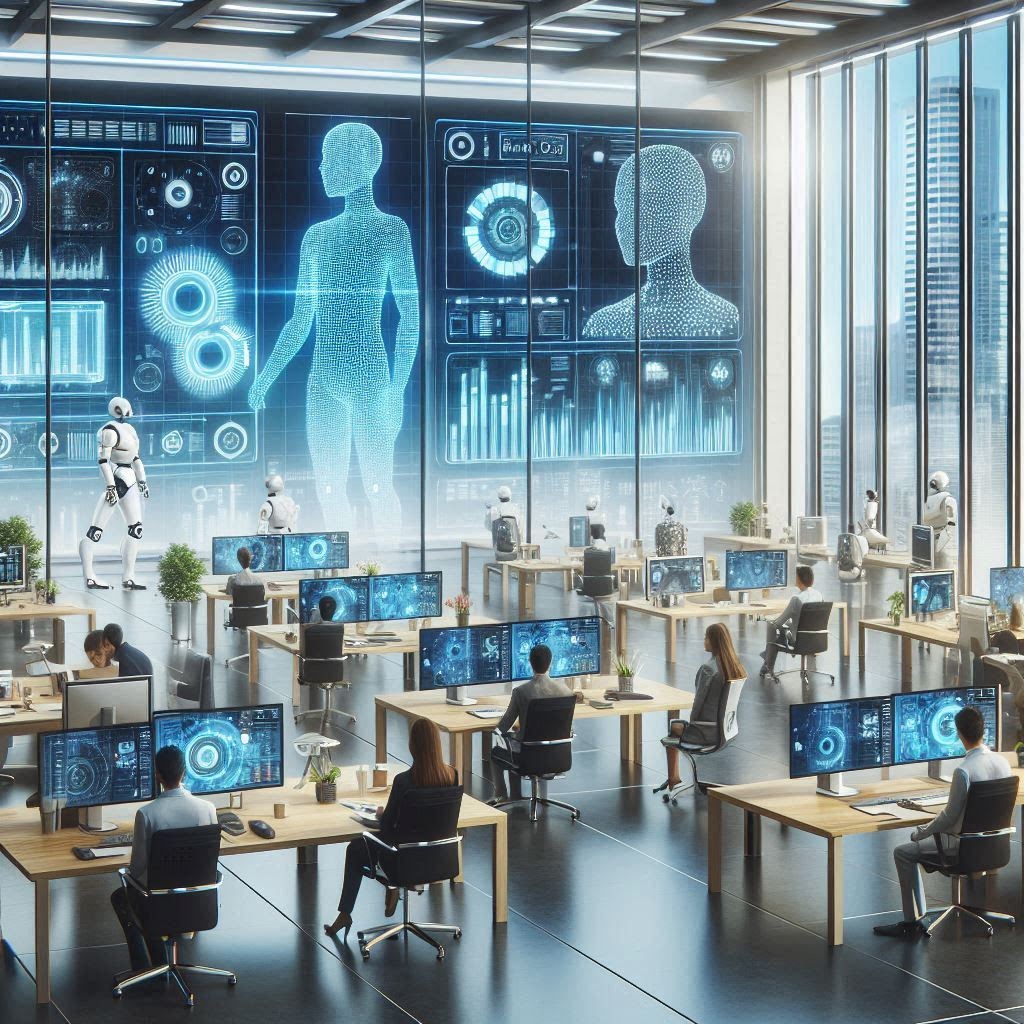The Rise of AI Agents: How Autonomous AI Is Changing the Future of Work

Image courtesy: Unsplash
Introduction
In 2025, Artificial Intelligence has entered a new phase — moving from passive tools to active participants. Autonomous AI agents are designed to analyze, decide, and act on tasks without constant human supervision. These self-directed agents are revolutionizing industries, from customer service to software development and research automation.
Powered by large language models and decision trees, AI agents are no longer just supporting roles — they’re collaborators, and in some cases, full operators in digital workflows.
What Are Autonomous AI Agents?
Autonomous AI agents are intelligent systems that use AI models to perform tasks based on given goals. They can plan sequences of actions, make decisions using real-time data, and even revise their strategies when encountering new information.
Unlike traditional bots or assistants, these agents exhibit the ability to reason, learn from feedback, and work across multiple tools or APIs. Tools like AutoGPT, AgentGPT, and OpenAI GPT-4o Agents showcase this new wave of smart task solvers.
Top AI Agents in 2025
- OpenAI GPT-4o Agents: Integrated with voice, vision, and live web access. Acts like a real-time virtual assistant for work and creativity.
- AutoGPT: An open-source AI that loops tasks, stores memory, and completes multi-step processes automatically.
- AgentGPT: Web-based agent generator that allows users to create goal-based AI agents quickly without code.
- Meta Codex Assist: A newer agent by Meta that assists in debugging, documentation, and test case generation in large-scale systems.
Real-World Applications
- Customer Support: AI agents operate entire support flows—answering tickets, routing to humans, and collecting feedback.
- Healthcare: Agents monitor vitals, recommend treatments, and alert doctors automatically in critical scenarios.
- Education: Personalized tutoring AI agents adapt lessons based on student performance and emotional tone.
- Finance: Agents manage portfolio rebalancing, risk assessment, and alert for fraud detection in real time.
Benefits of Using AI Agents
Companies are deploying AI agents for major competitive advantages:
- Efficiency: Work gets done faster and with fewer errors.
- 24/7 Operation: Agents never sleep, ensuring round-the-clock productivity.
- Scalability: Handle 10 users or 10 million without a proportional rise in human labor.
- Personalization: Adjust responses based on customer or user history in milliseconds.

Image courtesy: Unsplash
Challenges and Ethical Concerns
Autonomous AI brings transformative power, but also raises serious questions:
- Bias & Fairness: Agents may replicate societal biases if not properly trained or audited.
- Job Displacement: Replacing repetitive jobs without reskilling programs could increase unemployment.
- Data Privacy: Agents often need full access to user data, raising concerns about surveillance and security.
- Decision Transparency: When an AI agent makes a decision, understanding the "why" behind it is still a challenge.
The Future: Will AI Agents Replace Jobs or Create New Ones?
While it's true that AI agents will automate many routine tasks, the bigger picture shows a shift—not just a loss. According to recent industry studies, AI adoption leads to a demand for new job categories such as:
- AI Ethics Consultant
- Prompt Engineer
- AI Operations Manager
- Human-AI Collaboration Designer
Conclusion
AI agents are no longer futuristic ideas — they're here, evolving rapidly. As they continue to integrate into our daily workflows, the need to understand, manage, and collaborate with them will only grow.
Businesses that embrace autonomous AI today will likely lead tomorrow. However, the implementation must be balanced with transparency, ethics, and human well-being in mind. AI agents should not replace humans — they should elevate them.
FAQs
An AI agent is an intelligent system capable of performing tasks autonomously using machine learning, reasoning, and real-time decision-making capabilities.
Yes. Unlike basic chatbots, AI agents can perform actions, loop tasks, adapt strategies, and interact with multiple systems.
Absolutely! With platforms like AutoGPT, AgentGPT, and LangChain, even non-developers can experiment with building custom agents.
Basic coding (Python), understanding of APIs, prompt engineering, and knowledge of AI ethics are valuable.
Buy cheap website traffic


Comments
Post a Comment